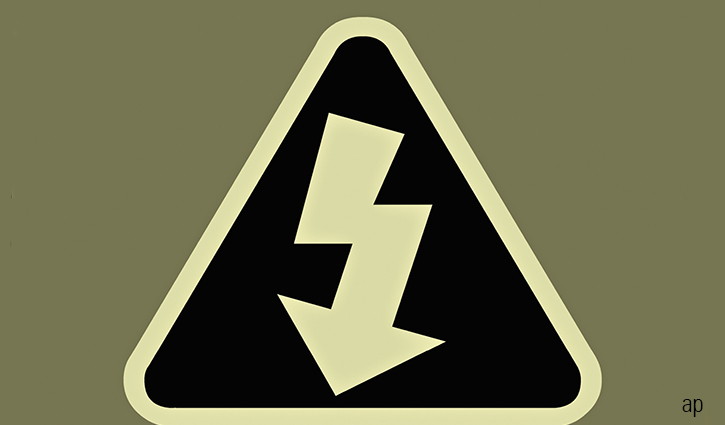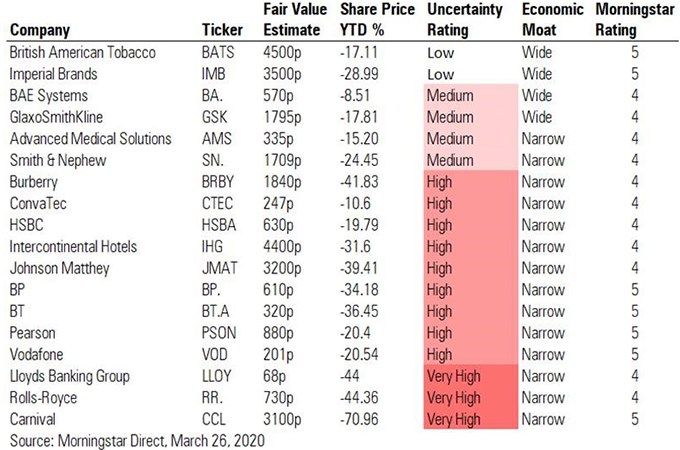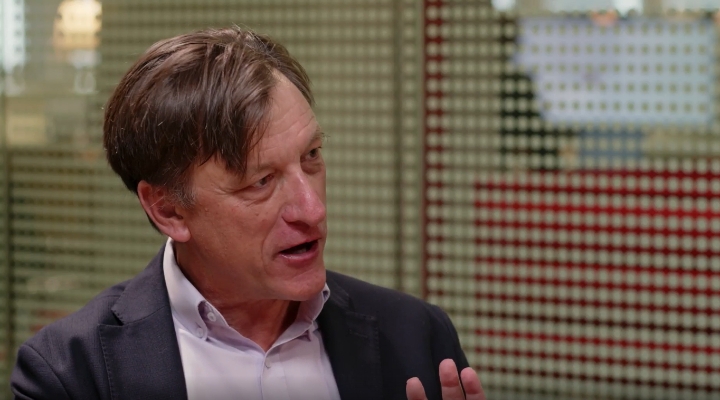
Stock markets famously hate uncertainty and there’s a lot of it about right now. Are we already in recession and, if so, how long will it last? Some experts forecast that the coming economic downturn will be worse than that of financial crisis, which in itself was the biggest slump since the Great Depression.
Morningstar has a more precise measure of “uncertainty” that it applies to stocks and this relates to their “fair value” - the share price our analysts ascribe to a company. We regularly write about “fair value” and “economic moats” in relation to how shares we cover are over- or undervalued and whether they have competitive advantages.
With stock markets so volatile, it’s hard for investors – and analysts – to pin company valuations down on a daily basis. Many of our highly rated four-star stocks have become five-star stocks in the sell-off: there are now 11 firms under our coverage with a narrow moat and a five-star rating, among them dividend giants BP (BP.) and Shell (RDSB). This top rating means the stocks are significantly below their estimated fair values. On the flipside, a one-star stock is significantly overvalued - currently Tesla (TSLA) and Netflix (NFLX) are rated as one star.
“Stars are an indicator of what our analysts think in terms of how attractive the stock as an investment right now,” says Morningstar director of equity research, Alex Morozov. The uncertainty rating, however, is a crucial part of that measure, assessing how volatile earnings or cash flow are likely to be in the next five to 10 years. He describes this as “risk rating” for a business – and there’s plenty of risk around at the moment.
What is an Uncertainty Rating?
The official methodology explains it as: “Morningstar’s Uncertainty Rating captures the range of potential intrinsic values for a company and uses it to assign the margin of safety required before investing.” This rating hinges around how our analysts ascertain a company’s fair value and looks at factors including sales and debt.
Using Morningstar Direct data, we have scanned the UK market for very or significantly undervalued stocks (those rated 4 or 5 stars) with moats - and matched that up with their risk ratings.
Just two companies with that meet this criteria are deemed to have a low uncertainty rating: Imperial Brands and British American Tobacco. These two tobacco giants have a loyal, addicted customer base whose spending is not likely to be affected by economic conditions, giving a stable backdrop to the firms' revenue streams even during times of crisis.

Four stocks are assigned a medium Uncertainty Rating and three of these are healthcare companies, a sector which is in great demand as governments the world over rush to find a cure for Covid-19 and to stock up on personal protective equipment.
An Uncertainty Rating of "medium" or above is certainly a reminder that there are further factors to consider before investing, but it does not mean these stocks are not potentially good prospects. Just as a low dividend cover ratio is not always a signal to sell, a very high uncertainty rating will put off many cautious investors but could be an opportunity for those with the right risk appetite. But people have different perceptions of how much risk they can take and are happy to trade off the higher risk with the potentially higher reward.
Companies assigned a "very high" Uncertainty Rating are those more vulnerable to a downturn. Among their number are Rolls-Royce (RR.), which makes engines for airplanes, and cruise company Carnival (CCL) whose shares have plummeted this year. The two businesses are likely to suffer as demand for travel plunges as government's put their populations on lockdown.
The highest (or lowest, depending on how you look at it) uncertainty rating is "Extreme" but no stocks rated 4 or 5 stars which have an economic moat fall into this cateogry.



























